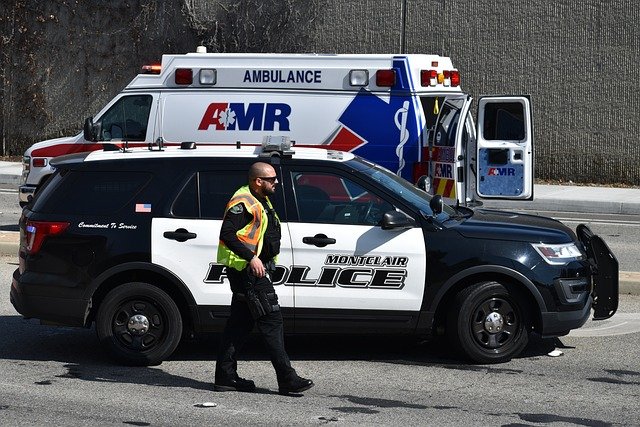The path of becoming a first responder represents an esteemed and indispensable professional journey centered on delivering immediate aid and support in critical situations. These dedicated individuals typically assume the primary role at the scene, swiftly evaluating and managing diverse scenarios encompassing medical emergencies, accidents, natural calamities, and hazardous occurrences. Their proficient and timely interventions hold the potential to determine the very survival of those requiring assistance. This article seeks to delve into five imperative certifications that aspiring first responders must acquire to proficiently fulfill their responsibilities and uphold the safety and welfare of the communities they diligently serve.
1. Basic First Aid and CPR Certification
Possession of fundamental first aid and CPR (Cardiopulmonary Resuscitation) skills is a prerequisite for individuals aspiring to become first responders. These skills serve as the cornerstone of emergency medical care, enabling individuals to offer immediate assistance to injured or ill individuals until professional medical aid is available. Basic first aid training encompasses a wide array of techniques, including wound care, bandaging, splinting, and shock management. Conversely, CPR training equips individuals with the necessary knowledge and expertise to administer chest compressions and rescue breaths during cardiac arrest situations. Reputable organizations like the American Red Cross and the American Heart Association provide certification programs for these essential skills. After a cardiac arrest, oxygen cylinders are employed to administer oxygen to patients promptly. However, utilizing oxygen cylinders safely and ensuring their optimal functionality necessitates specialized training. It is strongly advised for individuals to consider enrolling in training programs such as the DEMA New Orleans training class and similar offerings. Training programs are meticulously designed to impart individuals with comprehensive skills for proficient handling and inspecting oxygen tanks. If you’re looking for formal training, you can simply search first aid courses near me, and reach out to your nearest certified training facility.
2. Emergency Medical Technician (EMT) Certification
EMTs hold a pivotal role in delivering prehospital care to patients, often being the first medical personnel to arrive at emergency scenes. Acquiring EMT certification entails comprehensive training and hands-on experience, surpassing the requirements of basic first aid and CPR. EMTs undergo rigorous instruction to proficiently assess patients, administer appropriate medical interventions, and, when necessary, facilitate their transportation to medical facilities. The EMT certification is stratified into distinct levels, namely EMT-Basic, EMT-Intermediate, and EMT-Paramedic, each mandating specific educational qualifications and clinical hours. Certification granted by the National Registry of Emergency Medical Technicians (NREMT) is widely esteemed across the United States and represents a pivotal milestone in the journey toward becoming a professional EMT.
3. Advanced Cardiac Life Support (ACLS) Certification
The ACLS certification is specifically tailored for healthcare professionals and advanced medical responders who may frequently confront cardiac emergencies. This comprehensive training program centers on the proficient management of cardiac arrest, life-threatening arrhythmias, and other urgent medical crises necessitating immediate intervention. Participants gain in-depth knowledge of advanced resuscitation techniques, airway management, and the utilization of specialized equipment, including defibrillators and advanced medication administration. Offered by the esteemed American Heart Association (AHA), the ACLS certification equips first responders with an enhanced skill set, bolstering their preparedness and ability to adeptly address critical medical scenarios.
4. Pediatric Advanced Life Support (PALS) Certification
Obtaining PALS certification holds paramount importance for professionals anticipating engagement with pediatric patients. Tailored specifically for healthcare providers and first responders who might encounter pediatric medical emergencies, PALS training imparts essential skills in recognizing and managing respiratory distress, shock, and cardiac arrest in infants and children. The comprehensive training encompasses age-specific approaches, emphasizing effective communication and teamwork in high-pressure scenarios. PALS certification stands as a frequently mandated requirement for healthcare professionals working in pediatric emergency departments and critical care units.
5. Incident Command System (ICS) Certification
The Incident Command System (ICS) serves as a standardized management framework employed to efficiently organize and coordinate emergency response operations. For first responders, ICS certification holds significant value as it imparts the necessary knowledge and skills to operate within a well-structured command system, particularly in the context of large-scale incidents. The training encompasses comprehensive guidance on roles, responsibilities, and communication protocols, fostering the ability of responders to function seamlessly as a cohesive team. Notably, the ICS certification courses offered by the Federal Emergency Management Agency (FEMA) enjoy widespread recognition in the domains of emergency response and disaster management.
Conclusion
Acquiring essential certifications is crucial for aspiring first responders to effectively handle emergencies. Basic first aid and CPR provide the foundation for emergency medical care, while EMT certification enables more advanced prehospital care. ACLS and PALS certifications are critical for managing cardiac emergencies and pediatric cases. HazMat awareness and ICS certifications ensure responders can handle hazardous incidents and collaborate efficiently during large-scale emergencies. Pursuing these certifications and engaging in continuous training establishes a strong foundation for a successful and impactful career in serving and safeguarding communities. With comprehensive skills and specialized knowledge, aspiring first responders become invaluable assets in emergency situations, making a positive difference in people’s lives.
















